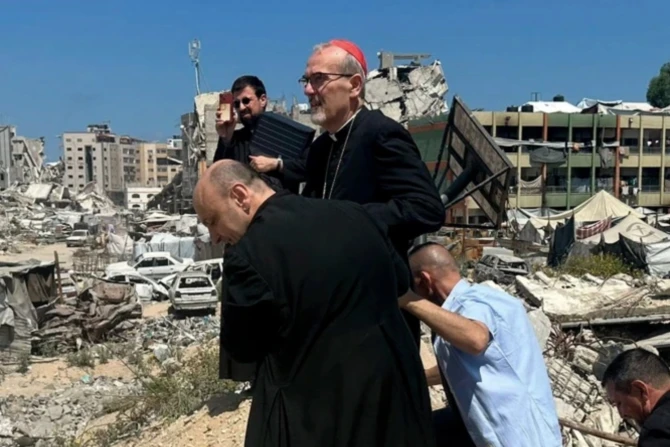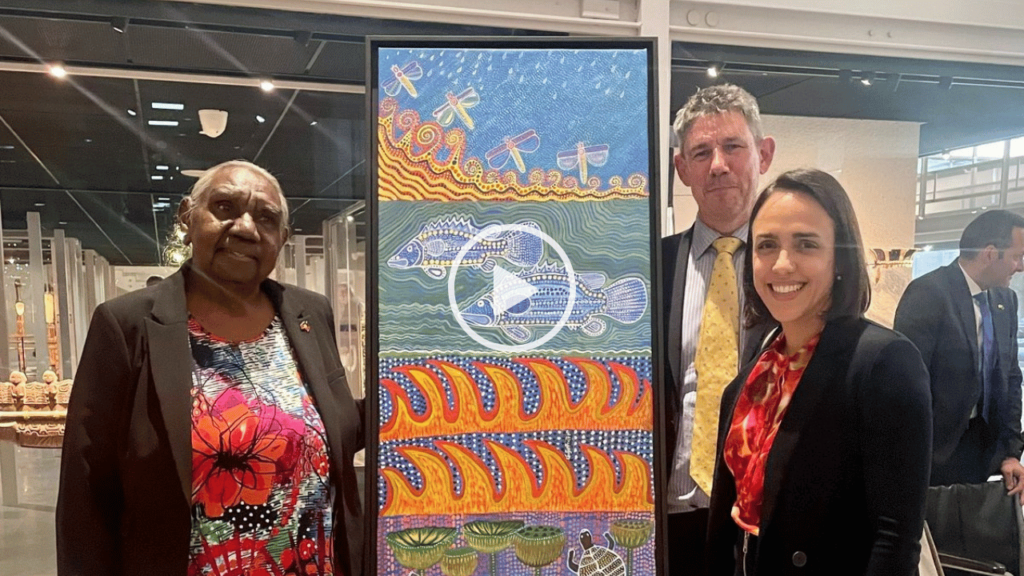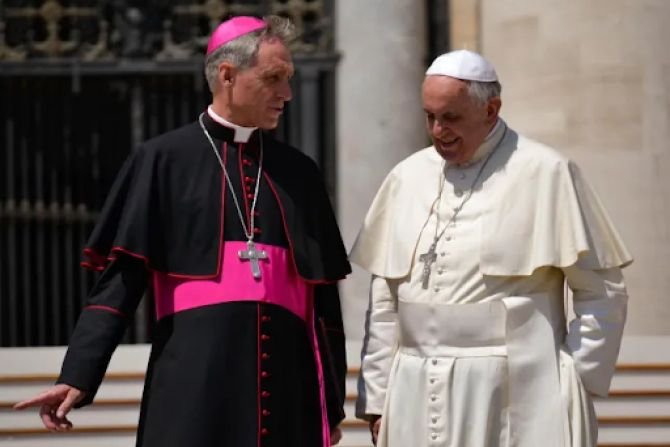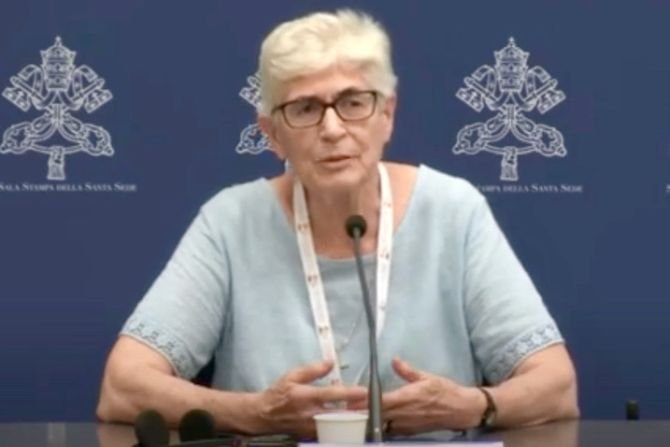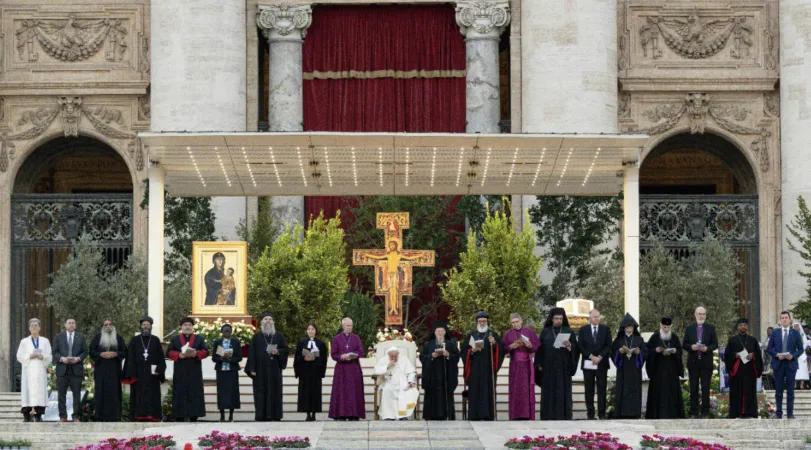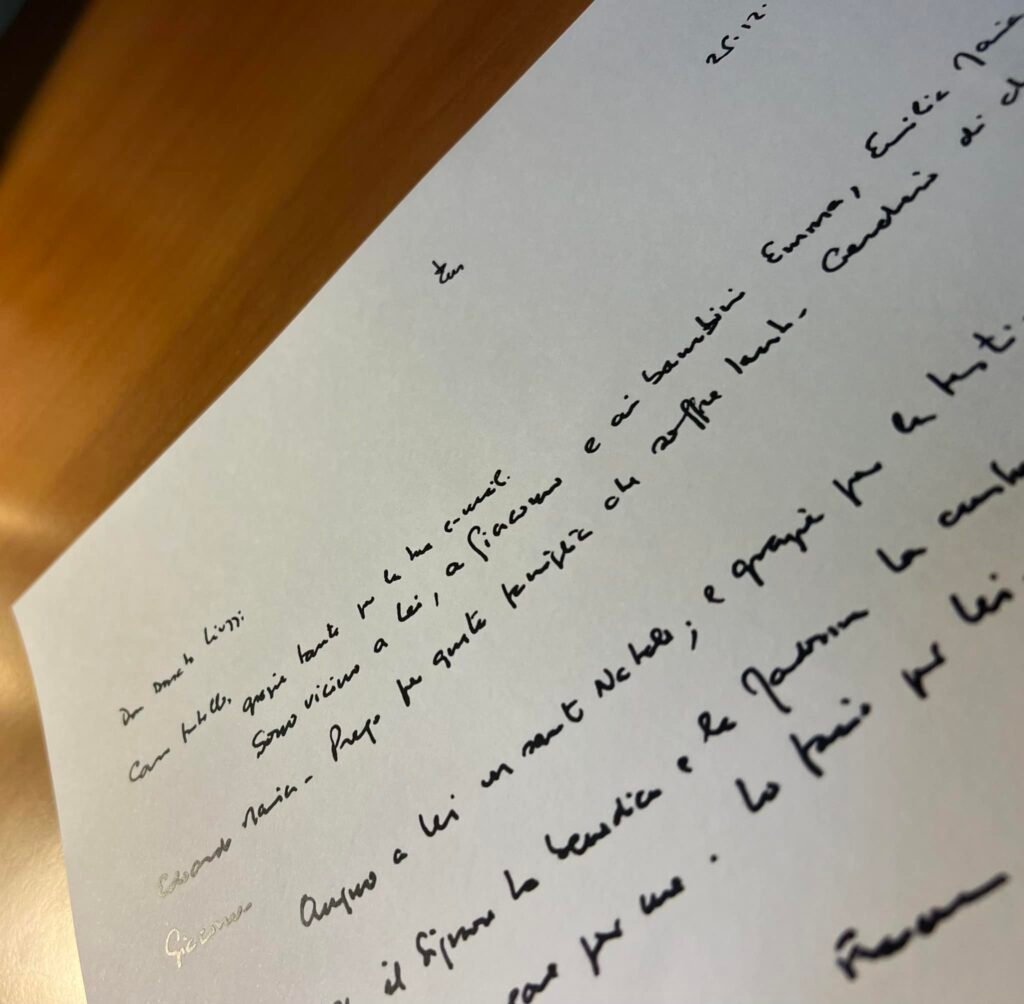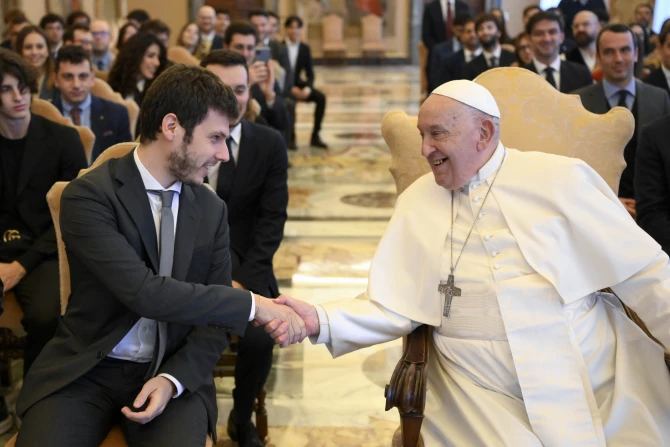The ongoing violence in the Holy Land, especially now with the war in Gaza, was addressed by the Latin patriarch of Jerusalem, Cardinal Pierbattista Pizzaballa, in his homily during the solemnity of the Assumption of Mary.
SIGN UP FOR OUR NEWSLETTER HERE
The prelate’s diocese includes not only Israel but also those living in the Palestinian territories of Gaza and the West Bank. This has allowed him to experience firsthand the consequences of violence, especially that which has ravaged the Gaza Strip in the last two years and which requires true words of peace, not “sugarcoated and abstract” speeches, he said.
From the Benedictine Monastery of Abu Gosh in Israel, the cardinal stated that while everyone wants an end to the conflict, its end will not mark “the end of hostilities and the pain they will cause,” as the desire for revenge will persist, and “we will have to struggle with the consequences of this war on people’s lives for a long time to come.”
In this regard, the cardinal recalled in his homily the importance of the Holy Land for Christians and for humanity, as the region where Mary said yes to God’s will and where Christ was born. It is also the place where the Lord defeated sin with his resurrection.
“It really does seem that our Holy Land, which preserves the highest revelation and manifestation of God, is also the place of the highest manifestation of Satan’s power. And perhaps precisely because it is the place where the heart of salvation history is located, it is also the place where ‘the Ancient Adversary’ tries to assert himself more than anywhere else,” he noted.
The Latin patriarch of Jerusalem was reflecting on the passage from the Book of Revelation that depicts the enormous dragon with seven heads and 10 diadems, which “is a very clear representation of the power of evil in the world, of Satan.”
“It strikes me that it is clear from this passage that the dragon, Satan, will never cease to assert himself and rage in the world, especially ‘against those who keep God’s commandments and bear witness to Jesus,’” he noted.
This, he explained, leads Christians to be aware that “the power of evil will continue to be present in the life of the world and in our own lives,” but this does not mean resignation, since the solemnity of the Assumption “also tells us that there is someone before whom evil is powerless.”
“The power of the dragon cannot prevail in the face of a birth, a mother who gives birth, who generates life. The dragon cannot triumph over the seed of life, the fruit of love,” he pointed out.
In this regard, the Latin patriarch of Jerusalem noted that the Church is called to plant a seed of life in the world. “Evil will continue to express itself, but we will be the place, the presence that the dragon cannot overcome: a seed of life,” he affirmed.
Pizzaballa noted that while “we know that sooner or later the dragon will be defeated,” Christians today are called to persevere, “because we know that the dragon will continue to rage through history.”
However, he said that “the blood caused by all this evil” throughout the world “flows under the altar, mingled with the blood of the Lamb, united to the work of redemption to which we all are part of.”
“The Assumption of the Virgin Mary, which we celebrate, her complete participation, with body and soul, in the victory of Christ, is also a foretaste of our destiny as children of God, as baptized and redeemed by the blood of Christ,” he affirmed.
Finally, the patriarch encouraged: “So as we rise from the Eucharistic table, today, we carry with us the certainty of Christ’s victory over death, the conviction that our life, however much it may be turned upside down by the dramatic events of today, is nevertheless the place where the dragon will not prevail, for it is a life bathed in the blood of the Lamb, in God’s infinite love.”
This story was first published by ACI Prensa, CNA’s Spanish-language news partner. It has been translated and adapted by CNA.

